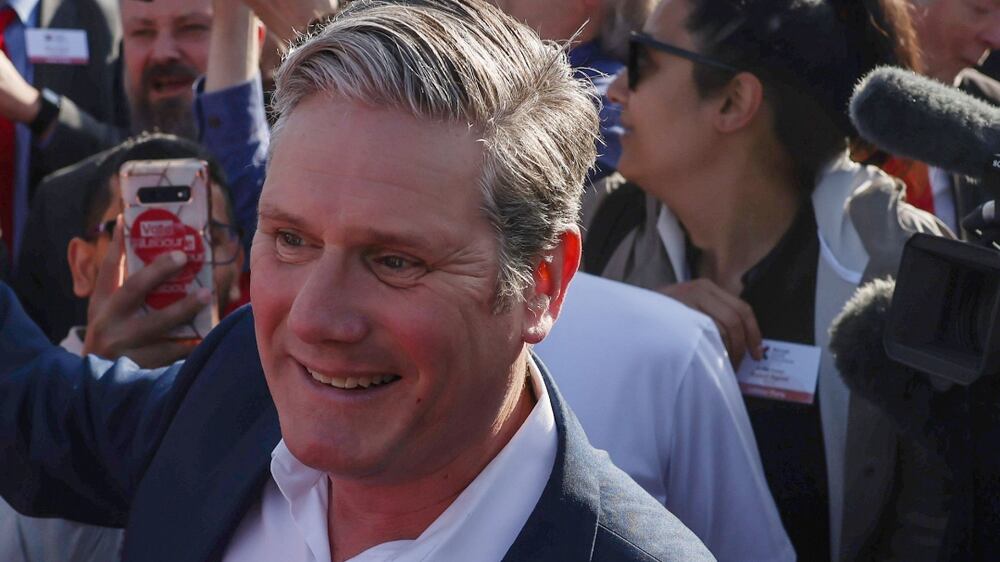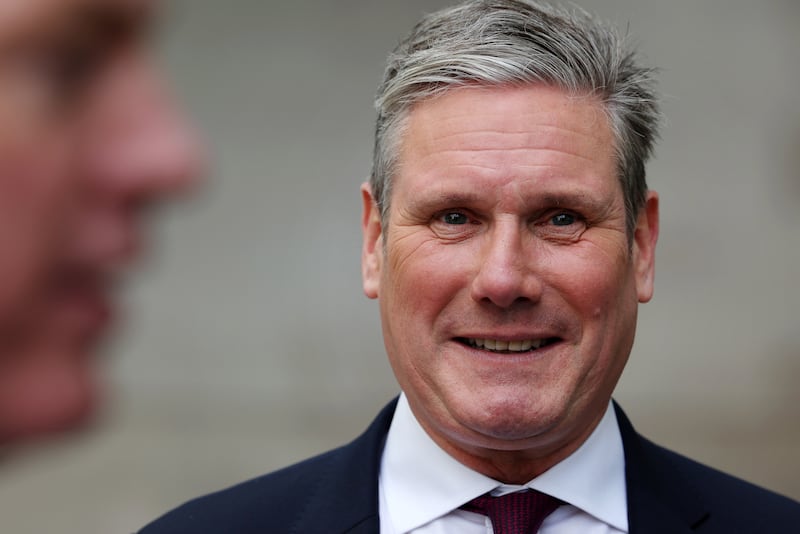Keir Starmer has a mission-driven vision for Britain. In the “tri-election” campaign which has just ended, the Labour leader can claim some satisfaction that his “fresh-start” messaging is hitting home.
The party won one of the three seats up for grabs in Thursday's by-elections with his namesake Keir Mather gaining Selby and Ainsty in Yorkshire.
In the May elections, Labour became the largest party of local government, passing the Tories for the first time since 2002.
However, on Thursday the Labour Party missed out on Boris Johnson's old seat of Uxbridge and South Ruislip, suggesting there are still hurdles ahead for Mr Starmer as he seeks to enter Downing Street.
British elections expert Sir John Curtice said the latter result raised doubts over Mr Starmer's policy-driven appeal to voters.
“Labour's failure to take Uxbridge will raise questions about the effectiveness of Sir Keir Starmer's electoral strategy,” he wrote on Friday.
Sir Keir has laid out five missions – the highest sustained growth in the G7, making Britain a clean-energy superpower, improving the National Health Service, making streets safer and breaking down barriers to bring opportunities for all.
He and his team hope that stressing these policy planks will be enough to remove the Conservative government from power after 13 years.
Since late 2021, Mr Starmer has maintained leads in opinion polls over the Conservative Party, building his confidence as a potential future leader of the country.
Early life
Keir Starmer was born on September 2, 1962, in London, and grew up in Surrey.
He was active in politics from a young age, joining the Labour Party Young Socialists in East Surrey as a teenager.
Mr Starmer graduated from the University of Leeds with a law degree in 1985 before gaining a postgraduate bachelor of civil law at the University of Oxford.
Work before politics
Mr Starmer was called to the Bar in 1987 and practised criminal defence work, specialising in human rights cases.
In 2008, he became the Director of Public Prosecutions and the head of the Crown Prosecution Service, holding these positions until 2013.
Mr Starmer was awarded a knighthood for his “services to law and criminal justice” in 2014.
He married Victoria Alexander in 2007 and they have a son and a daughter.
Keir Starmer celebrates UK local election results – video
Sir Keir Starmer celebrates UK local election results

Life in politics
Keir Starmer became an MP in 2015 after winning the safe Labour seat of Holborn and St Pancras.
Under Jeremy Corbyn's leadership, he was shadow minister for immigration and shadow secretary of state for exiting the EU.
After Mr Corbyn's resignation following Labour's 2019 general election defeat, Mr Starmer won the party's leadership vote in 2020.
What are his policies as Labour leader?
“Britain needs a mission-driven government to end short-term, sticking-plaster politics,” Mr Starmer said before outlining his vision for the future of a Labour government.
He believes his policies will give “Britain back its future and to restore pride and purpose in the country”.
Mr Starmer says that each policy is built on the strong foundations of economic stability, national security and secure borders.
First, he pledges to secure the highest sustained growth in the G7, “with good jobs and productivity growth in every part of the country, making everyone, not just a few, better off”.
He also wants to make Britain a clean-energy superpower “to create jobs, cut bills and boost energy security with zero-carbon electricity by 2030, accelerating to net zero”.
Health care is also a focus for Mr Starmer. He has promised to build a National Health Service “fit for the future”.
He pledges: “It will be there when people need it, with fewer lives lost to the biggest killers; in a fairer Britain where everyone lives well for longer”.
Mr Starmer says a Labour government would make Britain's streets safe by halving serious violent crime. He also pledges to raise confidence in the police and criminal justice system to its highest levels.
He promises to break down the barriers to opportunity “at every stage, for every child, by reforming childcare and education, raising standards everywhere and preparing young people for work and life”.
What is his leadership style?
Many of Mr Starmer's allies believe his formal suits, speaking style and thoroughly researched Commons questions, are what the party needs to take them to victory in the next general election.
So far, this old-fashioned persona is returning positive feedback in the polls.
But critics suggest his methodical approach to strategy, as well as his voice and body language, suggest he is not a political natural.
During his Labour leadership Mr Starmer has opposed the government on several issues, including its response to the Covid 19 pandemic, Partygate, the September 2022 mini-budget, and the cost of living crisis.
Eliminating anti-Semitism in the Labour Party has been another focus of his leadership.







